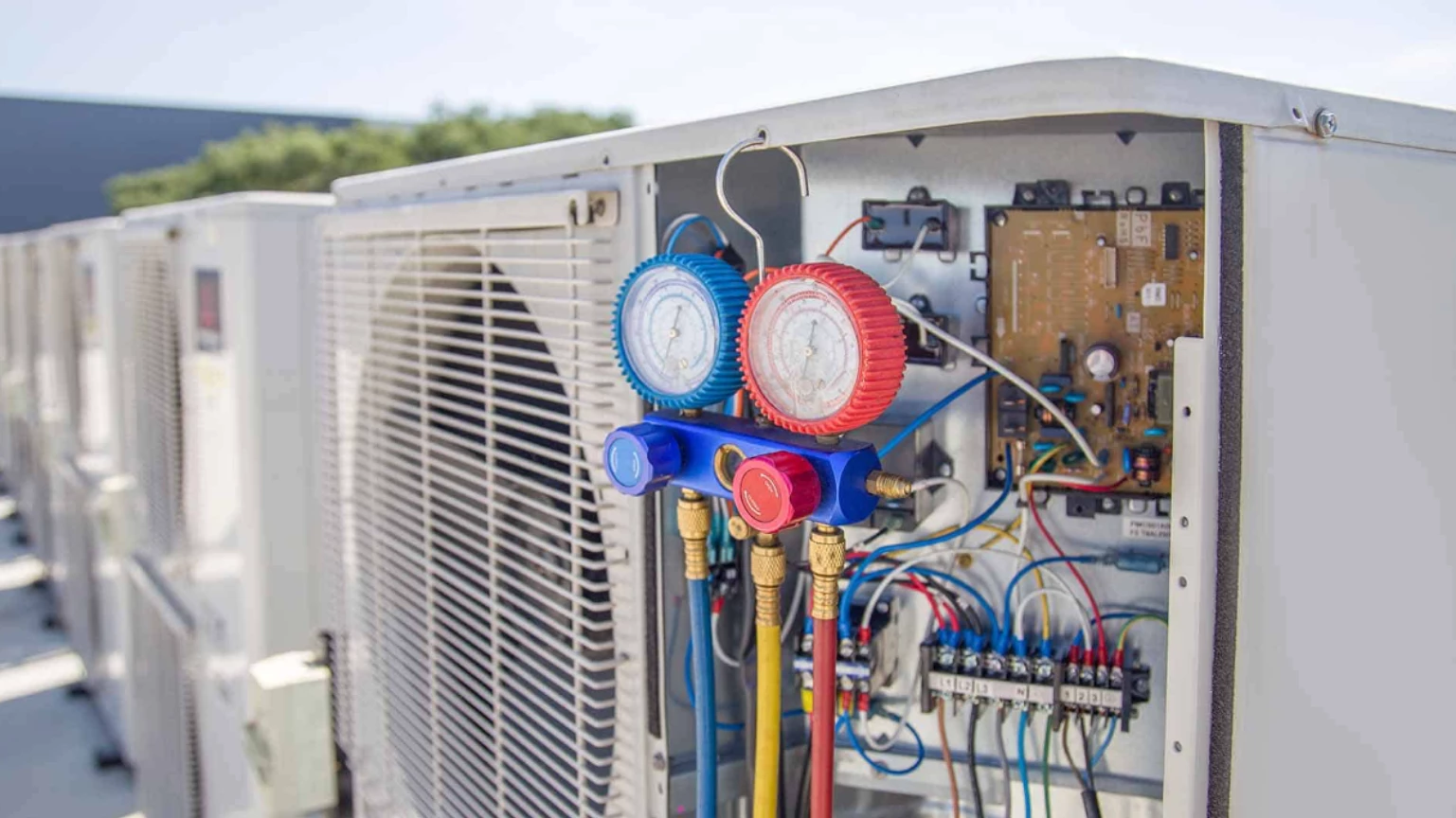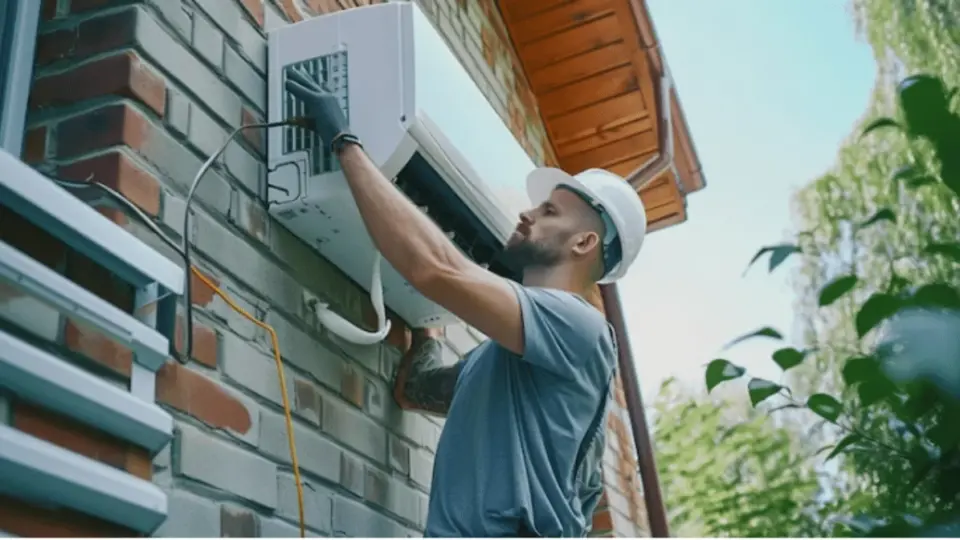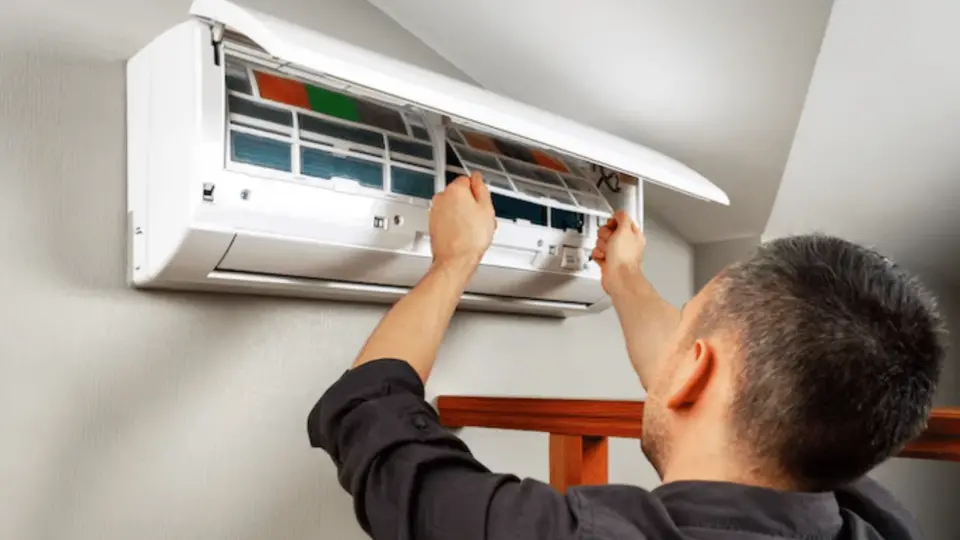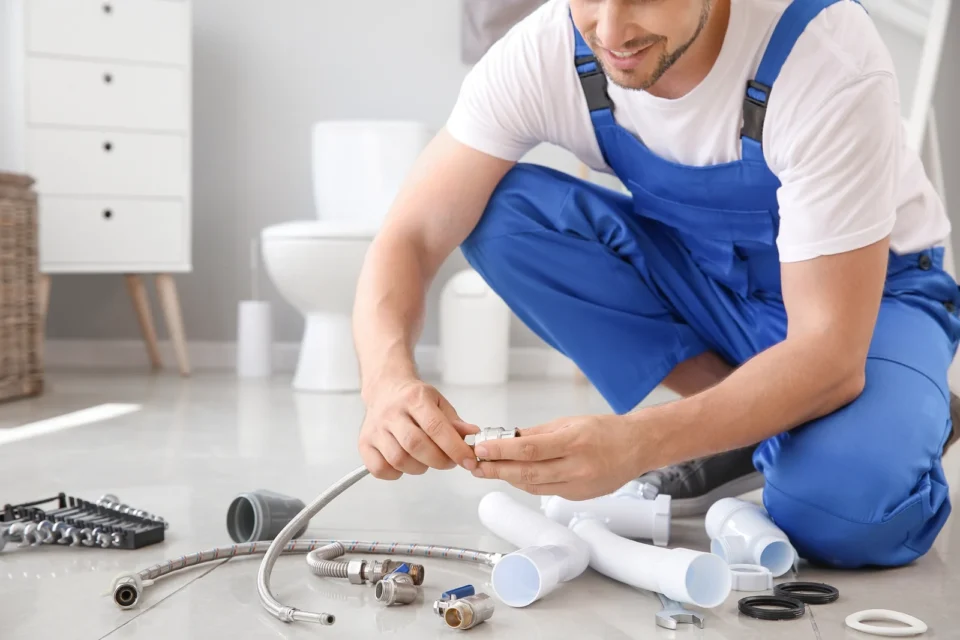When it comes to running a business, ensuring that your commercial HVAC system is in top condition is essential for maintaining a comfortable environment and keeping operations smooth.
A well-functioning HVAC system not only regulates temperature but also ensures proper air quality, which is crucial for the health and comfort of your employees and customers. Whether it’s the peak of summer heat or the chill of winter, any downtime due to HVAC issues can disrupt your business and potentially lead to lost revenue.
Regular maintenance and timely repairs are key to avoiding unexpected breakdowns and costly emergencies. Keep reading to learn more about keeping your business running smoothly with reliable HVAC maintenance.
What are the most common problems with commercial HVAC systems?
The most common problems with commercial HVAC systems include:
- Dirty or Clogged Filters: Filters can clog with dust and debris if not changed regularly, reducing airflow and system efficiency.
- Refrigerant Leaks: A low refrigerant level can cause the system to lose cooling capacity, leading to higher potential compressor damage and energy consumption.
- Thermostat Issues: Malfunctioning thermostats can lead to incorrect temperature readings, causing the system to cycle too frequently.
- Electrical Problems: Faulty wiring, blown fuses, or tripped breakers can cause the HVAC system to shut down unexpectedly.
- Sensor Problems: Misaligned or faulty sensors can prevent the HVAC system from maintaining the desired temperature.
- Drainage Issues: Blocked or clogged drain lines can cause building water damage and humidity problems.
- Wear and Tear: Over time, components like belts, bearings, and motors can wear out, leading to decreased efficiency and potential system failure.
- Airflow Problems: Blocked or leaky ducts can reduce the efficiency of the HVAC system, causing uneven heating or cooling throughout the building.
- Lack of Maintenance: Neglecting regular maintenance can lead to a buildup of minor issues that eventually cause major system failures.
- Aging Equipment: Older HVAC systems are more prone to breakdowns and inefficiencies, often requiring more frequent repairs and higher operating costs.
How often should a commercial HVAC system be serviced?
A commercial HVAC system should be serviced at least twice a year. Here are some guidelines to follow:
- Bi-Annual Maintenance: Schedule comprehensive maintenance checks in the spring and fall to prepare the system for the summer cooling and winter heating seasons.
- Monthly Checks: Inspect and replace air filters every month or more frequently if the system is in a particularly dusty or high-use environment.
- Quarterly Inspections: Conduct inspections for components such as thermostats, sensors, and electrical connections to ensure they function correctly.
- Seasonal Adjustments: Adjust and calibrate the system settings at the start of each season to optimize performance and energy efficiency.
- As-Needed Repairs: Address any issues that arise swiftly to avoid expensive repairs from minor issues.
Adhering to this maintenance schedule can ensure that your commercial HVAC system operates efficiently, increases its longevity and lowers the possibility of unplanned malfunctions.
What are the signs that a commercial HVAC system needs repair?
Signs that a commercial HVAC system needs repair include:
- Inconsistent Temperatures: Uneven heating or cooling in different building areas indicates potential issues with the system’s ability to maintain a consistent temperature.
- Unusual Noises: Grinding, squealing, or banging sounds from the HVAC unit suggest problems with internal components such as belts, bearings, or motors.
- Increased Energy Bills: A sudden spike in energy costs can indicate that the HVAC system is working harder than usual due to inefficiencies or malfunctions.
- Poor Airflow: Weak or reduced airflow from vents can signal blockages, leaks, or issues with the blower fan.
- Frequent Cycling: The system turning on and off more frequently than normal (short cycling) can indicate thermostat problems, refrigerant leaks, or other system issues.
- Unpleasant Odors: Musty, burning, or unusual smells from the vents can indicate mold, electrical issues, or burnt-out components.
- Excess Humidity: If the system is unable to effectively control humidity levels, it could indicate problems with the dehumidification process or drainage system.
- Water Leaks: Pooled water or excessive moisture around the HVAC unit suggests drainage or refrigerant lines issues.
- Poor Air Quality: An increase in dust, allergens, or other airborne particles inside the building can indicate that the HVAC system is not filtering or circulating air properly.
- System Not Responding: If the HVAC system does not turn on or respond to thermostat settings, it could be due to electrical issues or a complete system failure.
If any of these signs are observed, it is important to promptly schedule a professional inspection repair to avoid future damage and assure the system operates efficiently.
How can I choose a reliable commercial HVAC repair service?
Choosing a reliable commercial HVAC repair service involves several key steps:
- Check Credentials and Experience: Ensure the service provider has substantial commercial experience and is licensed and insured HVAC systems. Look for certified technicians by recognized organizations like NATE (North American Technician Excellence).
- Read Reviews and Testimonials: Research check internet reviews and business references to assess the company’s reputation and customer satisfaction. Look for consistent positive feedback regarding reliability, professionalism, and quality of work.
- Verify Specializations: Confirm that the HVAC service specializes in commercial systems and has experience with the specific type and brand of equipment you have. Residential HVAC systems are simpler than commercial ones and require specialized knowledge.
- Request Detailed Estimates: Obtain written estimates from multiple service providers for comparison. Estimates should split down labor, parts, and other costs. Be wary of unusually low bids, which might indicate subpar work or hidden fees.
- Inquire About Service Contracts: A reputable HVAC service company should offer service contracts that include regular maintenance checks, priority service, and repair discounts. This ensures ongoing support and helps prevent major issues.
- Check Availability and Response Time: Find out the company’s availability for emergency repairs and their typical response time. Reliable HVAC services should offer 24/7 emergency support to minimize downtime and disruptions to your business.
- Assess Communication and Professionalism: Evaluate how the company handles your inquiries. Professional and responsive communication is a good indicator of their commitment to customer service.
- Look for Comprehensive Services: Choose a company that offers a full range of services, including installation, maintenance, and repairs. This ensures continuity and a deeper understanding of your system’s history and needs.
- Review Warranty and Guarantees: Ensure the company provides warranties on parts and labor. A good warranty reflects confidence in the company’s work and offers protection against future issues.
- Seek Recommendations: Ask other business owners in your industry or network for recommendations. Personal referrals can be a valuable source of trustworthy service providers.
By following these steps, you can choose a reliable commercial HVAC repair service that meets your business needs and ensures the longevity and efficiency of your HVAC system.
Ensure Efficiency with Expert HVAC Services!
Ensure your business runs smoothly with expert HVAC services from Elite Air & Heat, LLC! Our team of highly trained professionals specializes in commercial HVAC repair and maintenance, ensuring your systems operate at peak efficiency year-round. We offer comprehensive services, including regular maintenance, prompt repairs, and system upgrades, to keep your environment comfortable and your operations uninterrupted.
Trust us to deliver reliable, cost-effective solutions tailored to your specific needs. Contact Elite Air & Heat, LLC today and experience the difference our expertise can make in maintaining your commercial HVAC systems. Your comfort and efficiency are our top priorities!




